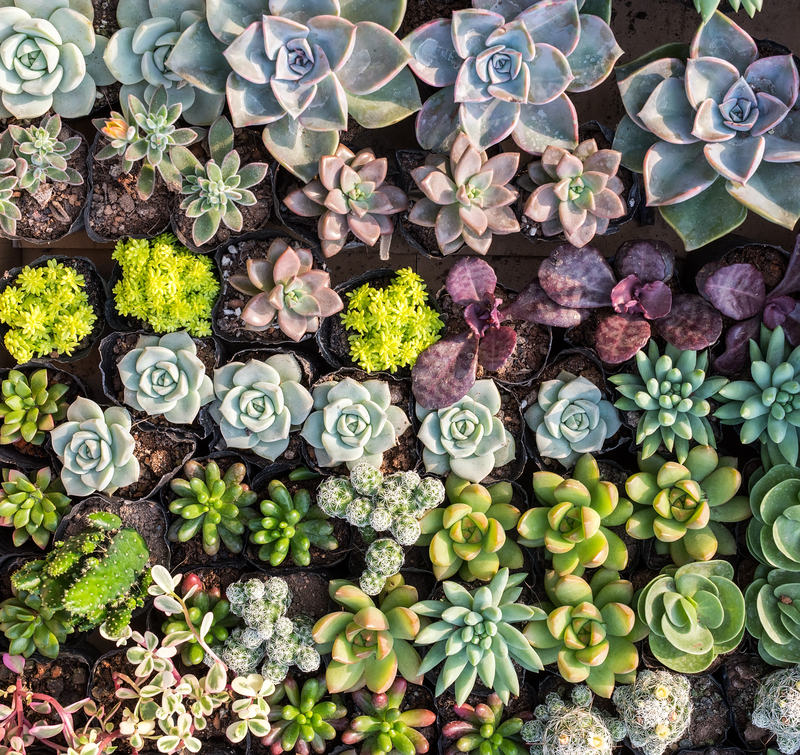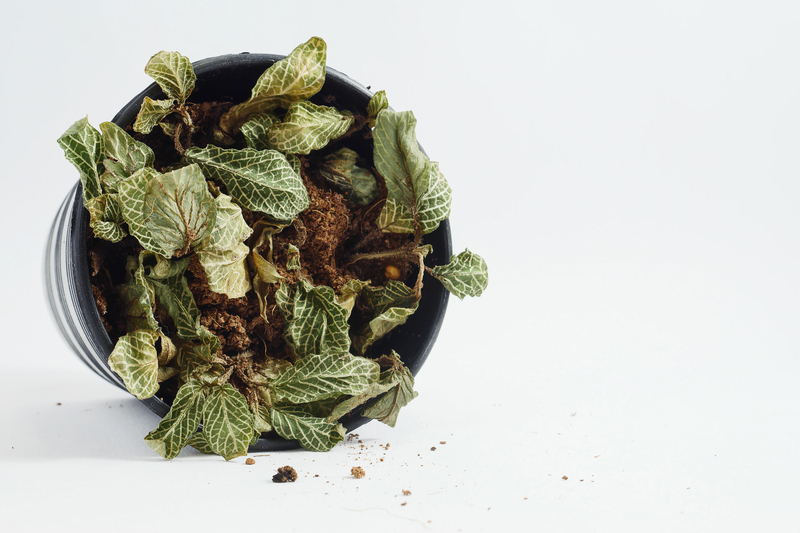Enhance Your Garden's Beauty with 3 Weed Control Techniques
Posted on 13/08/2025
Enhance Your Garden's Beauty with 3 Weed Control Techniques
A well-maintained garden can transform your outdoor space, turning it into a vibrant sanctuary of color, fragrance, and serenity. However, even the most beautifully designed gardens can lose their allure when unwelcome weeds invade. Weeds not only undermine the aesthetic appeal of your garden, but they also compete with your beloved plants for nutrients, water, and sunlight. To preserve your garden's charm, employing effective weed control techniques is essential. In this comprehensive guide, we'll delve into three powerful weed management methods that will help you enhance your garden's beauty and keep it thriving year-round.
Why Is Effective Weed Control So Important?
Weeds are more than just unsightly; they can be detrimental to the overall health and productivity of your garden. Controlling weeds ensures that your ornamental plants, vegetables, and flowers receive the resources they need to flourish. Here's why it matters:
- Improved Visual Appeal: Weeds disrupt the clean lines and lush look of well-tended garden beds.
- Healthier Plants: Weeds steal moisture, nutrients, and sunlight from your chosen plants, weakening their growth.
- Pest and Disease Prevention: Many weeds harbor pests and diseases that can spread rapidly to your prized plants.
- Time and Cost Efficiency: Regular weed management helps reduce the need for extensive repairs, plant replacements, and costly interventions.
With the right approach, you can enhance your garden's beauty with weed control techniques that are effective, sustainable, and easy to maintain.

Top 3 Proven Weed Control Techniques for Beautiful Gardens
Let's explore the three most effective methods for weed control that can revolutionize the way your garden looks and thrives:
1. Mulching: Nature's Blanket Against Weeds
Mulching is one of the most popular and environmentally-friendly weed control techniques. Not only does it suppress weeds, but it also adds organic matter to the soil, improves moisture retention, and regulates soil temperature.
How Mulching Controls Weeds
- Blocks sunlight: A thick layer of mulch prevents weed seeds from receiving the sunlight they need to germinate.
- Physical barrier: Mulch acts as a shield, making it difficult for weed shoots to penetrate through to the surface.
Types of Mulch
- Organic Mulch: Includes wood chips, bark, straw, grass clippings, shredded leaves, and compost. This kind of mulch decomposes over time and enriches the soil.
- Inorganic Mulch: Includes gravel, pebbles, landscape fabric, and plastic sheeting. These materials are longer-lasting but do not improve soil fertility.
Best Practices for Mulching
- Apply mulch after removing existing weeds.
- Maintain a depth of 2-4 inches for best results.
- Avoid piling mulch directly against plant stems to prevent rot.
- Refresh organic mulch annually as it breaks down over time.
Mulching is not just a weed suppression technique; it is a garden enhancer. Your beds will look neater, and your plants will experience healthier growth with fewer maintenance headaches.
2. Manual Weeding: The Hands-On Approach for Lasting Results
While it may seem old-fashioned, manual weeding remains one of the most reliable methods to control weeds. This technique involves physically removing weeds by hand or with the help of simple tools.
Advantages of Manual Weeding
- Immediate Impact: You can see and remove weeds instantly.
- Selective Removal: Target only the unwanted plants without disturbing desired species.
- Environmentally Friendly: No chemicals or artificial materials are introduced into your garden.
- Prevents Seed Spread: By removing the entire weed (roots included), you limit future infestations.
Tips for Efficient Hand Weeding
- Weed after rain or watering: Moist soil makes it easier to pull weeds from the root system.
- Use appropriate tools: Hand forks, weeders, and trowels can help dislodge stubborn roots.
- Regular maintenance: Frequent hand weeding--especially during peak growing seasons--prevents weeds from seeding.
- Dispose properly: Collect removed weeds in a bag or bin and discard them; avoid composting weeds with seeds or invasive roots.
Manual weed removal may demand some effort, but the results are well worth it. Including this practice in your gardening routine not only improves the appearance of your beds but also supports the overall vitality of your landscape.
3. Pre-Emergence Weed Control: Stopping Weeds Before They Sprout
Proactive gardeners know that the best way to tackle weeds is to stop them before they even start. Pre-emergence weed control employs barriers and products that prevent weed seeds from germinating, saving you hours of labor later in the season.
Using Landscape Fabric and Barriers
- Landscape fabric: Nonwoven, permeable fabrics placed over soil block light and reduce weed seed germination while allowing air and moisture to pass through.
- Plastic sheets: While effective at smothering weeds, these are less eco-friendly and can hinder water movement; best used for paths or under decorative gravel.
Pre-Emergence Herbicides: When and How to Use
- Apply in early spring, before weeds begin to sprout.
- Select a product appropriate for your garden's specific requirements (ornamental beds, lawns, or vegetable patches).
- Water in the product after application to activate and create a soil barrier.
- Follow all label instructions for safety and effectiveness.
Pre-emergence weed control techniques are especially effective in preventing annual weeds--such as crabgrass and chickweed--from taking hold in the first place. Combining this method with mulching or manual removal can dramatically reduce your garden's weed population.
Extra Tips to Maximize Your Garden's Weed-Free Beauty
- Plant densely: By spacing plants close together, you can shade the soil and discourage weed growth.
- Water wisely: Use drip irrigation or soaker hoses to deliver water directly to your plants' roots, rather than broadly watering weed seeds.
- Promptly address outbreaks: Early intervention keeps small weed problems from escalating into major issues.
- Rotate crops: In vegetable gardens, change planting locations each season to disrupt weeds' life cycles.
- Healthy soil: Regularly add compost and organic matter to improve soil structure, favoring your plants over opportunistic weeds.

Frequently Asked Questions about Weed Control in Gardens
How often should I apply mulch for weed control?
Refresh your mulch layer once a year for optimal weed prevention, usually in spring. Some materials may need topping up more frequently if they decompose quickly.
Are chemical weed killers safe for my garden?
Some herbicides are effective, but many can harm beneficial insects, soil health, or even desired plants if misapplied. When possible, prioritize mechanical and cultural weed control methods for a safer, eco-friendly approach.
How do I distinguish between weeds and valuable plants?
Familiarize yourself with the appearance of your chosen plants at all stages of growth. Keep plant tags, use identification apps, or consult local gardening groups if unsure.
Can I compost pulled weeds?
Compost only weeds that have not gone to seed or developed invasive root systems. High compost temperatures can neutralize some weed seeds, but err on the side of caution to avoid spreading weeds inadvertently.
Conclusion: Achieving a Beautiful, Weed-Free Garden
A weed-free garden is not just a pleasure to behold; it's also a healthier, more productive environment for your plants. By combining mulching, manual weeding, and pre-emergence weed control, you can enjoy a vibrant and thriving landscape with less effort over time. Remember, consistency is key--regular attention to weed management ensures lasting beauty and rewards you with a relaxing, inviting outdoor retreat.
Enhance your garden's beauty with these proven weed control techniques, and watch as your green oasis transforms into its most radiant self.
Latest Posts
Biological Recycling: Waste to Enriched Soil
Design the Perfect Garden Relaxation Zones
The Art of Vertical Gardening Design



